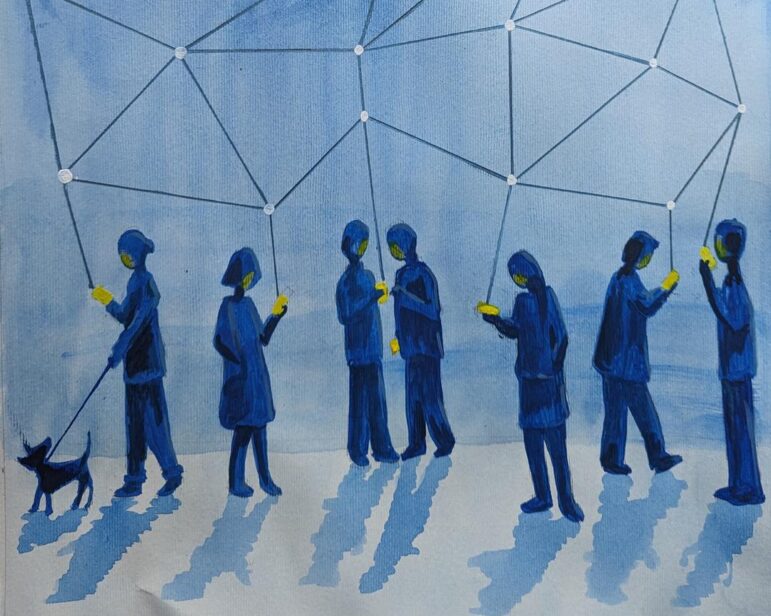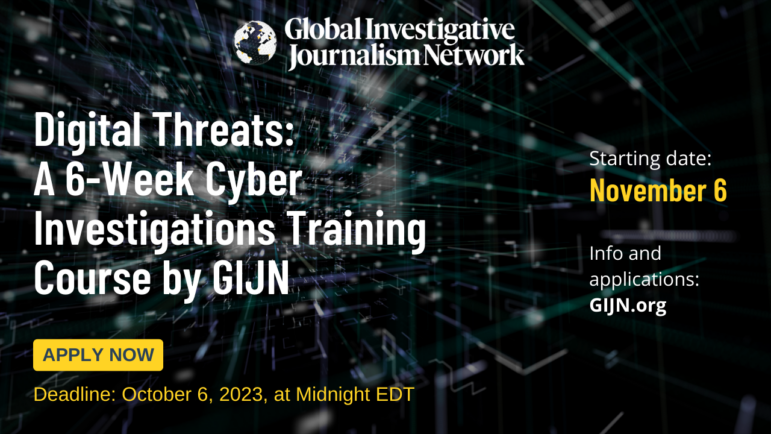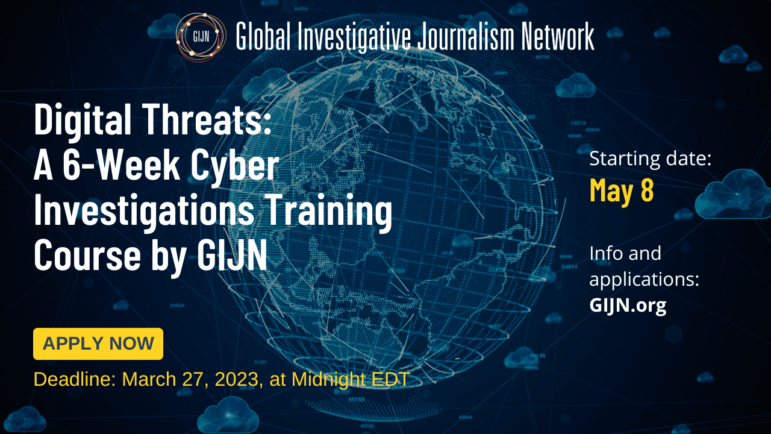
Teaching & Training
8 Most Common Cybersecurity Mistakes Journalists Should Avoid
Luis Assardo, a digital security trainer and investigative data journalist, gives tips on how journalists can keep their information and devices secure.

Luis Assardo, a digital security trainer and investigative data journalist, gives tips on how journalists can keep their information and devices secure.

Reporters from around the world will learn how to investigate the digital environment in order to understand and expose disinformation, online attacks, and manipulation.

The Mexico Border Investigative Reporting Hub helped new muckrakers shine a light on corruption and human rights issues.

Collaborative journalism, feminist perspectives, diverse newsrooms, and support from local journalists can lead to better coverage of migration.

GIJN Turkish Editor and data journalism instructor Pinar Dag is back with another quiz to test your knowledge of data visualization.

GIJN spoke to Jordy Meléndez of the Latam Network for Young Journalists about how his organization trains reporters to work on collaborative investigative projects.

The portrayal of journalists on film over the years has helped instil an understanding of what journalism is and what reporters do. Here are some of our favourites from around the world.

At the 2024 Journalism Practitioners Forum conference (J-Forum) in Japan, watchdog reporters came together to discuss their successful stories and share skills.

Tips from a workshop on how journalists and media outlets can better use YouTube in their election coverage.

In GIJN’s digital threats training course, reporters from around the world will learn how to investigate the digital environment in order to understand and expose disinformation, online attacks, and manipulation.

Boyoung Lim went from police officer to investigative reporter to head of the Pulitzer Center’s AI Accountability Network — a career trajectory neither linear nor planned.

This week, the second cohort of GIJN’s six-week, online Digital Threats course begins, training 25 journalists from 22 countries around the world.

In this training course, reporters from around the world will learn how to investigate the digital environment in order to understand and expose attacks and manipulation.

GIJN is offering a unique cyber reporting training program specifically tailored for investigative reporters. The course is free and limited to 20 participants. It will take place each Monday and Thursday for six consecutive weeks at 10 am EDT, starting on May 08, 2023. Apply here.

Practicing good mental hygiene is a continuous process for investigators that requires active input at all times. Bellingcat offers these small steps to minimize and mitigate your exposure to distressing content, to possibly save you from burnout or worse.

What is an application programming interface (API) and how can it help reporters gather information online? Data journalist Paul Bradshaw explains how to use this tool in your next investigation.

In this online webinar, free of charge for journalists across Africa and beyond, we bring together four journalism experts from Google News Lab, Code for Africa, Transparency International Kenya’s Media Tech Hub and GIJN, who will share their tips and advice about great online tools for journalists.

Quiztime is a Twitter game beloved by journalists and other online sleuths who play it to hone their geolocation skills. Every day, one of the quizmasters tweets a mysterious image, and participants try to figure out where in the world it was taken by examining the minutest of clues.


Information stored on your computer or mobile is at risk. You could leave it on a train; it could be seized at an airport security checkpoint; or by the police or courts. And of course hackers can access your data. You need to be aware of all the risks and ways to protect your information, your sources and yourself.

In this just-released video, investigative reporter Mark Schapiro goes in-depth on how to use investigative techniques in probing often complex environmental issues. Schapiro, a veteran of the original Center for Investigative Reporting, gave this talk in Hamburg at NR15, the July 2015 annual conference of Netzwerk Recherche, Germany’s investigative journalism association.

Search engines are an intrinsic part of the array of commonly used “open source” research tools. Together with social media, domain name look-ups and more traditional solutions such as newspapers, effective web searching will help you find vital information. Many people find that search engines often bring up disappointing results from dubious sources. A few tricks, however, can ensure that you corner the pages you are looking for, from sites you can trust. The same goes for searching social networks and other sources to locate people.
The good people at the Journalism in the Americas Blog, who just hosted the always interesting International Symposium on Online Journalism, alerted us to a useful new video, “Data Journalism: An Explication.” Here are journalists doing their best to define data journalism.The video comes from Cindy Royal, an associate professor, and Dale Blasingame, a lecturer, in the School of Journalism and Mass Communication at Texas State University.

Paper trails have always been of great interest to investigative journalists. Digging into documents can tell a great deal about people, organizations, and what they’re up to. Here’s today’s Doc of the Day, a contract recently filled by the U.S. Secret Service, the law enforcement group charged with protecting the president and other political VIPs. It’s for “Dark Web Data Subscription.” More than 90% of the Web is thought to be unsearchable by Google and other common search engines. This is often called the dark or deep Web, and it includes sites behind firewalls and passwords, unusual formats, criminal and other hidden networks, and lots and lots of databases.